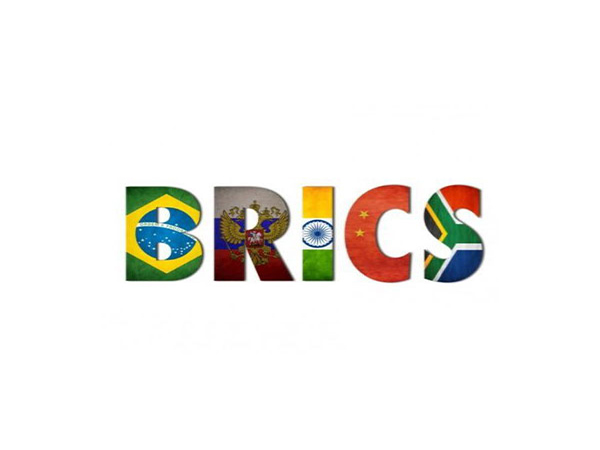

Last Thursday, the BRICS grouping of five major emerging economies – Brazil, Russia, India, China, and South Africa – at the end of its meeting in Johannesburg announced its decision to invite six new members to join beginning January 1, 2024.
Four of the countries invited to join BRICS (the acronym of its five members) are countries of the Middle East: Saudi Arabia, the United Arab Emirates, Egypt, and Iran, and the other two are Argentina and Ethiopia. The expansion of the grouping, if successful, may become a game changer and may transform it from basically a geoeconomic to a geopolitical platform.
China’s President Xi Jinping hailed the decision to expand the club as “historic”, while Russian President Vladimir Putin (who joined the Johannesburg meeting through video conference) congratulated the new members and added that the expansion means that the global influence of BRICS would grow.
India’s Prime Minister Narendra Modi also welcomed the expansion, saying his country had always believed that adding new members would strengthen the bloc.
US National Security Adviser Jake Sullivan played down the fact that countries openly antagonistic to the US and the West- like Iran- were invited to join BRICS, saying that the Biden administration was “not looking at the BRICS as evolving into some kind of geopolitical rival to the United States or anyone else.”
However, if all the countries invited to join the group actually do it, BRICS will more than double in number and could become a counterweight to the US and its allies. Some observers see BRICS as nothing more than a talking shop, while others consider the expansion as symbolic but not substantial.
There are some analysts who see the grouping as having the potential to create a new version of the world economy.
The United Arab Emirates immediately accepted the invitation, while the Saudi Foreign Minister Prince Faisal bin Farhan, said the Kingdom was awaiting details from the grouping and will later announce its decision.
For its part, Egypt announced it was looking forward to joining the BRICS.
Iranian President Ebrahim Raisi stressed that the expansion of BRICS showed that the unilateral approach is on the way to decay.”
Michelle Grise, a senior researcher at Rand Corporation, speaking to Al Jazeera, said: “BRICS membership offers a path for Saudi Arabia and the UAE to balance their respective relationships with the United States with their interests in deepening economic ties with China.”
If Saudi Arabia and Iran join the BRICS, which already includes Russia, this will mean that the grouping could be able to exert great influence on the production and marketing of global oil. It could become a grouping like OPEC+.
It is not known what specific criteria were taken into account by the five current BRICS members to invite, among the reportedly 40 candidate countries, only Saudi Arabia, the UAE, Egypt, Iran, Argentina, and Ethiopia to become members of the platform.
The fact that nations with diverse economies, such as rich Saudi Arabia, low-income Ethiopia, and Argentina which is currently facing dire economic problems, were invited to become BRICS members, as well as countries that have serious disputes like Egypt and Ethiopia (over the Grand Renaissance Dam) will surely make it difficult for the grouping to reach unanimous decisions, as the interests of members will be divergent.
Decision-making in such a diverse group will be complex and difficult. On the other hand, participation in the same platform could help these countries solve their differences.
The 11 BRICS countries would have a combined population of 3.7 billion and this figure is bound to increase even more when Russia assumes the chair of the grouping in 2024, when more African and South American countries that have already applied to join BRICS, are accepted.
Currently, the grouping represents a quarter of the global domestic product, while trade among the five BRICS countries between 2017 and 2022 increased by 56%. Certainly, one of the basic aims of increasing the number of members of the grouping is to give opportunities to its members to trade more easily with one another using local currencies.
If the expansion of BRICS is completed successfully and the members are able to reach decisions and implement them effectively, the grouping will become one of the most important international platforms and its importance will be similar to the G7.
Brazilian President Lula da Silva has claimed that the addition of six new member states meant that the global purchasing power of the BRICS countries was now greater than that of the G7 countries (Canada, France, Germany, Italy, Japan, the UK, and the US). The G7 countries, he said, account for 30 per cent of global purchases, but the BRICS countries now account for 37 per cent.
However, the success of BRICS expansion will depend on the ability of all its members to act together and work toward the same goals.
As Julian Borger, Guardian newspaper’s world affairs editor, points out: “It is unclear, how the expansion would significantly enhance the group’s clout on the global stage. That would depend on how far it will be able to act in unison, analysts said, and the group of new members has made it even more disparate, a mix of powerful autocracies with middle-income and developing democracies.” (ANI)